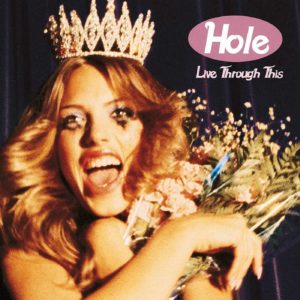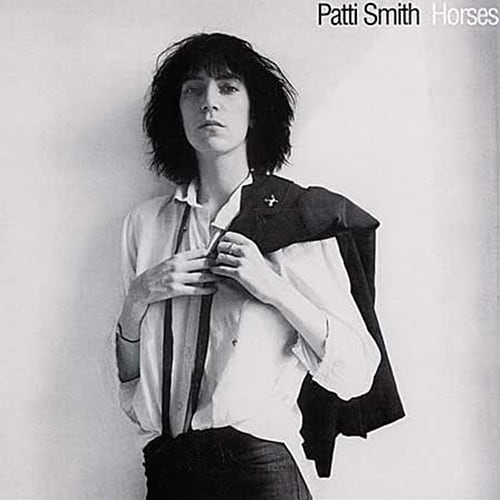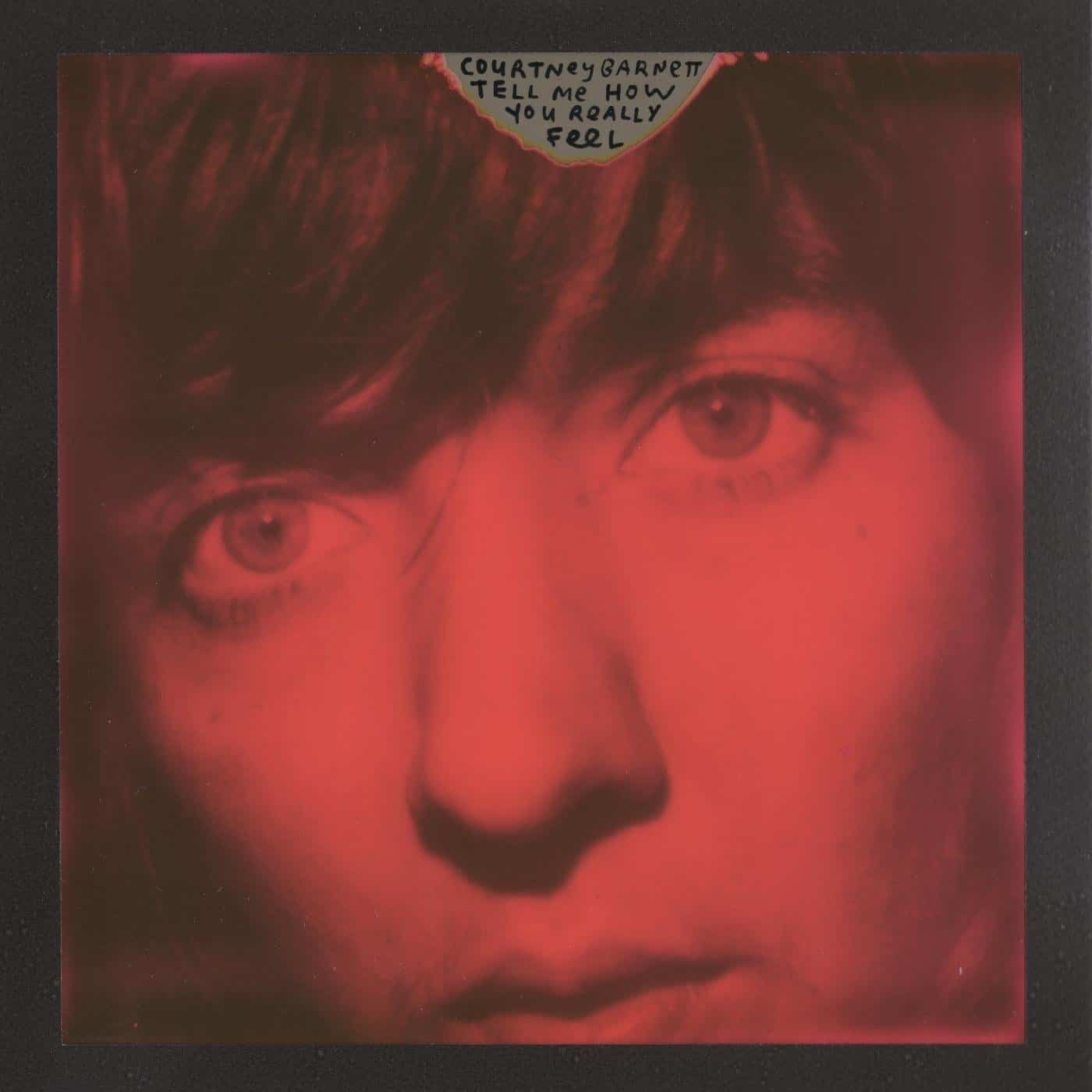Marketplace
2016 Geffen Records PRESSING
- Catalog Number 602547849670
- Release Year 2016
- Pressing Weight 180g
- Jacket Style Single
- Pressing Plant Record industry
When listening to this album I think of this band or music:
Hole leader Courtney Love has cited Patti Smith’s Horses as a life-changing influence. Not surprisingly, Love’s less-refined version of Smith’s contralto delivery is easy to spot throughout Live Through This. Love also channels John Lydon’s scathing snarl on songs like “Gutless” and “Asking for It.” By extension, Eric Erlandson pays guitar homage to the Sex Pistols’ Steve Jones as well as the Cure’s Robert Smith on a variety of tracks.
Music from this album would be a great soundtrack to this movie:
Live Through This is as close to a soundtrack of the history of Love’s tumultuous life in Oregon and Washington as it gets. It tells the story of a precocious child who grew up always wanting to “be the girl with the most cake” and who finally managed to fight her way to the head of the table. It would be ideal for a cautionary film that delivers the message “be careful what you wish for.”
Any accurate assessment of Hole’s Live Through This requires a serious commitment to objectivity. Facts have to be separated from the rumors, innuendo, and slut-shaming that arose in the frequently self-generated media circus that surrounded bandleader and lead singer Courtney Love in 1994. It doesn’t help that the album came out just week after her husband’s suicide. And there’s no denying the music bears the stamp of Kurt Cobain’s whisper-to-a-scream songwriting style. Yet the members of Hole managed to take Cobain’s template and infuse it with righteous assertion and punk-laced vitriol, stamping Live Through This with a potency that lingers nearly 25 years after its original release.
Just listen to the thundering authority of Patty Schemel’s drumming and Kristen Pfaff’s driving, metronome-steady bass lines, which permeate the record and lend an assaultive force to Love’s lacerating quips. Indeed, the latter’s dominant personality often overshadows guitarist Eric Erlandson’s key role in forming the band’s sound. Love was just an amateur guitarist when the group was founded. She heavily relied on Erlandson’s six-string skills to develop the melodic complexity that helps elevate Live Through This above many of the sludgy, monotone efforts that proliferated in the wake of the early 90s grunge tsunami.
Among the record’s most compelling components are the raw emotions and third-wave feminism that bubble up throughout. Consider the lyrics from “Doll Parts”: “He only loves those things/Because he loves to see them break/I fake it so real, I am beyond fake/And someday, you will ache like I ache.” Such struggle between the need for authenticity and utter cynicism emerges as a dominate theme in a number of songs (“Plump,” “Miss World”). On other tracks, the band acts as a conduit for Love’s rage against those who oppose her point of view. While the approach appears as a clever put-down on “Olympia” (mislabeled “Rock Star” by the record label), it turns relentless during “She Walks on Me,” with Love shredding her vocal chords via gale-force screams.
A document of suffering that should speak to anyone who has ever felt misjudged, maligned, and overlooked, Live Through This also stands as a superior record to Hole’s 1991 debut, Pretty on the Inside. The latter effort’s repetitive song structures and threadbare sonics are here abandoned for cohesive arrangements, a beefier midrange, and a more natural presentation of instrumental timbres. While far from audiophile grade, a great deal of credit for the improved sound goes to producers Paul Q. Kolderie and Sean Slade, known for their studio work on Radiohead’s Pablo Honey and Uncle Tupelo’s No Depression. Some might say Kolderie and Slade’s treatment sold out to mainstream radio, but the improved production makes it easier to emotionally connect to the music’s core.
The album’s visceral impact is further enhanced by Geffen’s analog reissue, far superior to the CD release of Bob Ludwig’s original master. Remastered for vinyl at Gateway Mastering and cut at Capitol Records, the LP eliminates much of the CD’s digital grain, gives added weight to the bottom end, and substantially opens up as the volume gets increased. Manufactured at the Record Industry plant in the Netherlands, my review disc is reasonably quiet, flat, and free of pops. If you’re a fan of Live Through This, you owe it yourself to buy the vinyl.
Live Through This


 4
4


